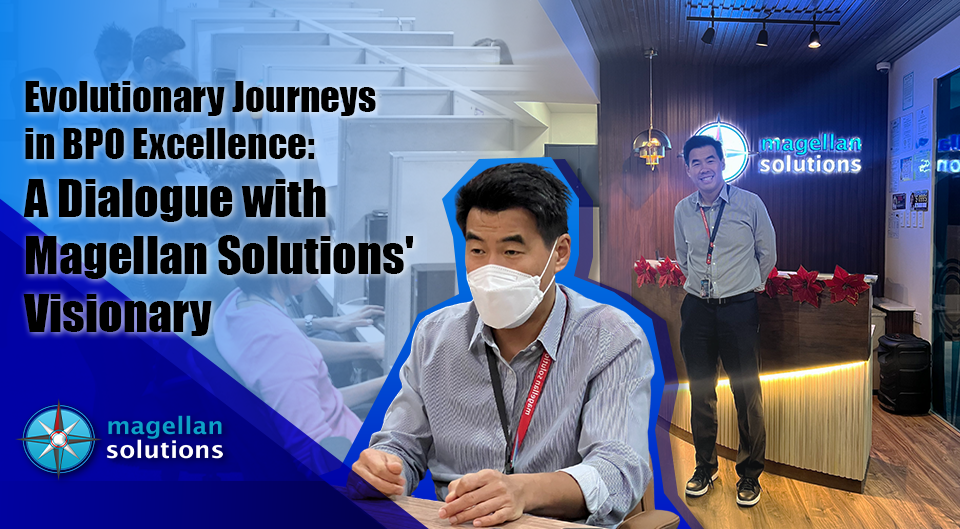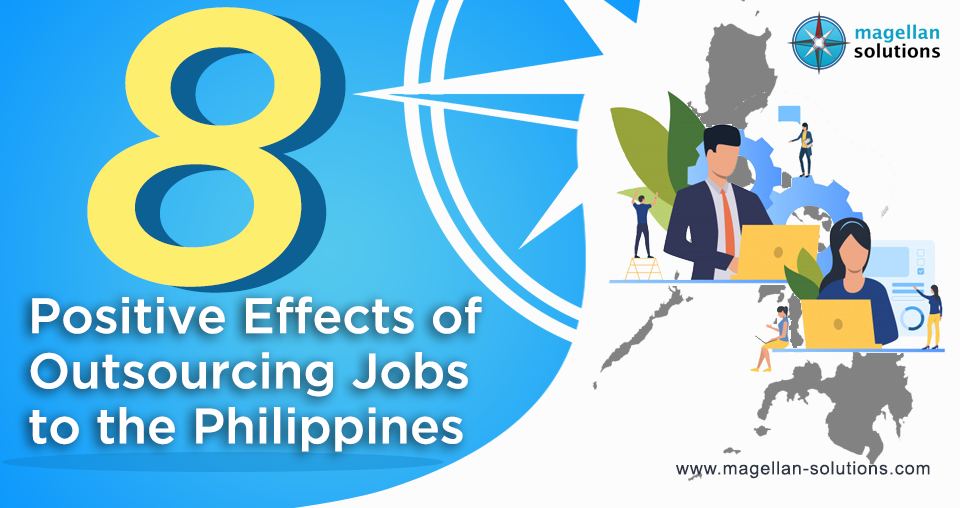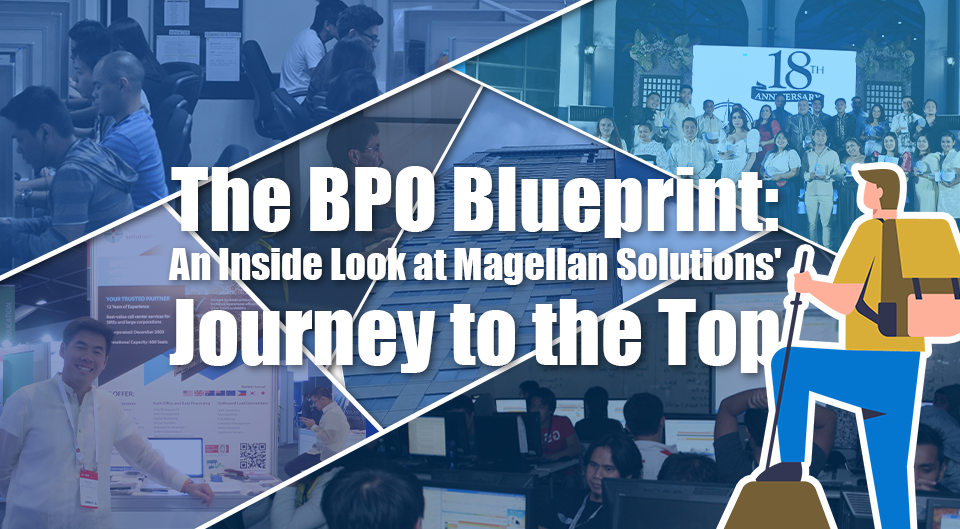Schedule a FREE call with our outsourcing expert now and get a precise quotation that meets your requirements. Don't wait - get started today!
With 75% of consumers willing to spend more with companies delivering excellent customer service, prioritizing the customer experience is no longer optional but essential for business success. The thriving Philippine call center industry is uniquely positioned to provide this exceptional service. The Philippine BPO industry boasts skilled workers who help top brands meet high customer demands.
Call centers are crucial for companies worldwide because they manage crucial customer interactions. As global leaders outsource contact center functions to optimize costs and experiences, the Philippines has emerged as a preferred destination.
Top Philippine call center providers like Magellan Solutions offer brands far-reaching expertise, the latest technologies, dedicated talent pools, and versatile solutions via robust omnichannel management.
This guide will discuss key Philippine call center industry players, highlighting their specialties, strengths, and the unique benefits they offer for creating a seamless customer experience. Let’s explore the country’s rise as a global customer experience powerhouse.
Exploring the Global Influence of Top-tier Philippine Call Center Companies
The emergence of Philippine call centers has reshaped the landscape of customer service excellence, positioning them as industry trailblazers that set new standards.
Teleperformance Philippines
Teleperformance Philippines is an icon of reliability and innovation within the country’s thriving call center sector. With its multilingual support services, the company has strategically positioned itself as a global leader in customer experience management. Teleperformance Philippines caters to a diverse clientele across businesses worldwide.
Key Strengths
-
Multilingual Support: One of Teleperformance’s pivotal strengths lies in its diversified, multilingual teams that proficiently serve an international clientele. Their linguistic dexterity and cultural expertise facilitate meaningful communication across geographies, demographics, and consumer bases.
-
Technological Prowess: Teleperformance utilizes cutting-edge tools and solutions for optimized customer service by adopting a progressive, tech-savvy approach. Their commitment to continually advancing technologies enhances omnichannel operations’ efficiency and effectiveness.
Success Factors
Teleperformance Philippines has carved an indelible mark within the country’s BPO landscape – becoming synonymous with service quality, responsiveness, and technical innovation. Their explosive growth and sustained industry leadership are attributed to the following:
-
Obsession with customer service excellence: Teleperformance Philippines focuses on enabling positive, meaningful customer interactions for their clients’ brands worldwide.
-
Seamless omnichannel experience: Teleperformance ensures seamless customer experiences by combining AI automation with human expertise across communication channels.
-
Adaptability to changing consumer expectations: continuously embracing emerging technologies, tools, and solutions to address shifting customer needs proactively.
As trailblazers and trusted partners in customer experience management, Teleperformance enables brands worldwide to forge deeper customer connections – making them a preferred choice across industries.
Magellan Solutions
Magellan Solutions has etched its name among the top-tier call centers in the Philippines. Known for service excellence across client categories, Magellan provides omnichannel customer experiences and back-office solutions.
Standout Success Pillars
-
Highly Skilled Teams: Magellan houses versatile talent pools that are thoroughly trained in the latest tools and processes to manage programs seamlessly. Niche skills and motivation ensure staff consistency in delivery standards.
-
Advanced Technology: By early adopting pioneering technologies in operations and analytics, Magellan optimizes efficiency while ensuring future readiness.
-
Client-Centric Approach: Every client program gets customized treatment through co-creation workshops. It addresses distinctive needs and aspirations via tailored solutions.
Industry Leadership is sustained by
-
Solution scope: end-to-end CX lifecycle management spanning customer service, technical support, and BPO solutions.
-
Operational Excellence: Premium service quality across metrics owing to robust governance frameworks and analytics-led interventions.
-
Cost Effectiveness: Process optimization, technology integration, and scale operations make high-value service propositions viable.
With versatility, customization skills, and consistent performance in its armor, Magellan delivers premium – yet affordable – experiences across client categories and verticals.
Convergys Philippines
Over the decades, Convergys Philippines has carved an indelible impact within the country’s thriving customer experience sector through top-notch service quality and constant innovation. Their influence as a trusted industry name continues to flourish.
Range of Services
-
Comprehensive Suite: Convergys offers an expansive repertoire of outsourcing solutions spanning customer service, technical support, back-office processing, IT services, and more. This diversified suite makes them a convenient one-stop shop for meeting varied offshoring needs.
-
Industry Expertise: The company has honed expertise in telecom, technology, retail, healthcare, and other verticals. This allows tailored offerings that seamlessly integrate with legacy systems and align with unique needs.
Success Factors
Convergys owes its market leadership to the following:
-
Solution scope: the ability to serve as a versatile partner supporting diverse operational requirements through integrated, omnichannel services.
-
Client-Centric Approach: Developing a nuanced understanding of the client’s challenges and goals to configure bespoke solutions.
-
Delivery Excellence: Consistently support service levels through rigorous agent training, cutting-edge technologies, and robust governance.
JP Morgan & Chase
JP Morgan is a banking and financial services leader in the Philippine BPO industry. With over 15,000 employees, it offers specialized support across sectors.
Key Focus Areas
-
Corporate & Investment Banking
-
Global Service Center for Operations, Research, IT, etc.
BPO Services
JP Morgan combines automation and human talent for
-
Wealth & Asset Management
-
Fintech Solutions
-
Accounting & Quality Assurance
-
Project Management & Risk Mitigation
Driving Success in Philippines BPO
The company succeeds through:
-
Integrated technology and expertise
-
Diverse financial services suite
-
Commitment to innovation and quality
-
Global clientele
Its diversified, tech-enabled services make JP Morgan a major Philippine BPO partner for financial institutions worldwide.
TTEC (formerly known as TeleTech)
TTEC Philippines has cemented itself as a significant player within the country’s thriving Philippine call center sector. Since opening its doors in 2001, the American services giant has employed over 23,000 staff across 19 delivery centers nationwide.
TTEC Specializations & Offerings:
-
Omnichannel Contact Center Solutions: Seamless customer experience across phone, email, app, web, and more
-
Cloud-Based Contact Center Platform: Cutting-edge technology for efficient operations
-
Customer Self-Service: Leveraging automation and AI for self-service
-
Non-Voice Processing: Back-office and other non-voice services
-
Industry Expertise: Tailored solutions for retail, travel, automotive, real estate, and more
TTEC specializes in complete “customer experience lifecycle” solutions. Their diverse omnichannel services optimize customer interactions, whether over the phone, email, app, or website. TTEC boosts efficiency across automation, AI, chatbots, and more by integrating cutting-edge technology with human insight.
The company’s unique edge lies in tailored offerings for the retail, travel, automotive, and real estate sectors. Their expertise in integrating digital self-service and contact center operations proves valuable for recognizable global brands.
TTEC leverages insider knowledge to help international businesses enhance engagement as the Philippine call center industry continues its rapid expansion. Their versatility, innovation-focused vision, and holistic approach drive success.
Sitel Philippines
Sitel Philippines has solidified its position among the country’s leading call centers through an uncompromising emphasis on optimizing the customer experience. Their focus on enabling positive brand interactions makes Sitel a top choice for customer-centric companies.
Key Specialties
-
Customer Experience Focus: Sitel has woven an obsession with outstanding customer service into its DNA. Each client connection is approached as an opportunity to drive loyalty through meaningful engagements across communication channels.
-
Adaptability: Over the years, Sitel has earned a reputation for its ability to configure robust solutions addressing distinct business needs and customer bases. This versatility allows for customized services that are fine-tuned to the requirements of diverse verticals.
Success Drivers
Sitel owes its consistent growth and industry recognition to the following:
-
Customer-First Mindset: Sitel builds connections that consumers cherish rather than merely transactions by viewing client interactions as the lifeblood of brands.
-
Bespoke Solutions: Their readiness to tailor-fit services to address unique customer pain points makes Sitel an agile long-term partner.
-
Outstanding Delivery: Agents thoroughly trained in customer empathy, industry insights, and tech tools ensure consistent service excellence.
Sitel keeps customer happiness at the epicenter of business goals, making it a versatile BPO ally for companies across sectors seeking to boost loyalty and retention.
Accenture
Global consulting & technology leader Accenture maximizes its outstanding international track record. It is a preferred choice for future-focused companies seeking cutting-edge services.
Key Innovations
-
Advanced Technology: Accenture constantly pushes boundaries through pioneering solutions in automation, artificial intelligence, cloud platforms, and more.
-
Global Know-how: The company’s vast international network provides access to the latest tech advances, proven methodologies, and top-tier cross-border talent.
Driving Philippine BPO Success Through
-
Trailblazing Solutions: introducing revolutionary technologies and management practices much ahead of competitors.
-
Excellence Focus: Rigorous global standards ensure consistent, high-quality service from a skilled Filipino workforce.
-
Transformation Partnership: helping enterprises and government agencies seamlessly transition into digital-first operations for sustainable growth.
Accenture steers the Philippine BPO industry’s success through its obsession with innovation, making it the go-to catalyst for companies seeking technology leadership and future readiness.
The Strengths and Diversity of the Philippine Call Center Industry
One of the standout features of the Philippine call center industry is its exceptional versatility. Philippine call centers strategically serve diverse industries with tailored solutions. Offering well-rounded services, from customer service to back-office processing, they cater to diverse sectors with broad capabilities.
These versatile hubs provide customized packages so brands across retail, banking, tech, healthcare, and hospitality can optimize engagement. Solutions adapt to match distinct business priorities and customer base needs.
However, the Philippine call center industry doesn’t just enable operations – it drives innovation. The leaders consistently raise industry benchmarks by continuously integrating pioneering technologies like AI. They leverage analytics, consumer research, and global expertise to produce meaningful customer journeys.
With an obsession for customer service excellence and digital leadership, Philippine call centers have become trusted global partners, delivering secure, caring, and efficient customer experiences worldwide.
How Philippine Call Centers Transform BPO Services
Philippine call centers play a crucial role as leaders in excellence and innovation. They go beyond just offering services; they are strategic partners providing top-notch BPO services. In the complex world of customer engagement, the strengths and diversity of the Philippine call center industry are essential assets for businesses.
For businesses seeking BPO services, the Philippine call center landscape holds extraordinary potential. These centers offer more than solutions – they deliver transformation. Their versatility suits diverse industry needs. Philippine call centers harness adaptability and innovation for customer excellence.
As we finish this journey, we invite businesses globally to discover the diverse services in the Philippine call center industry. These centers offer a wide range of offerings, including customer support and technical skills, that can enhance your operations.
Are you ready to boost your business’s customer experience? Contact us and let us discuss your needs. Together, we can transform engagement operations and achieve global impact. Elevate your customer engagement in the Philippine call center way.













